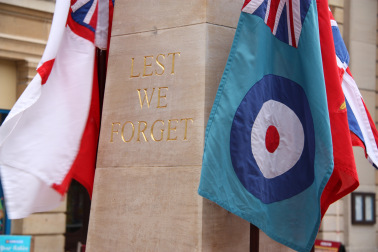 I’ve been looking into memory and how it functions. It was prompted by an interview on Newsnight on BBC2 recently on the Grenfell Tower fire. There were reports of an infant being thrown from the 4th floor and miraculously caught by someone on the ground. This amazing story of hope in the midst of disaster went viral. A reporter from Newsnight tried to track down the infant and indeed the person who caught them but found that no one knew who they were. The more the reporter went into this, they found that no one could confirm actually seeing it, yet everyone was adamant that it happened. It was beginning to sound like a false memory. They interviewed a psychologist, Dr Julia Shaw, who has carried out research into false memories and how the memory can trick us into thinking some things happened when they didn’t. She has written a book ‘The memory illusion: Remembering, forgetting and the science of false memory’. It is a particularly complex area of the mind.
I’ve been looking into memory and how it functions. It was prompted by an interview on Newsnight on BBC2 recently on the Grenfell Tower fire. There were reports of an infant being thrown from the 4th floor and miraculously caught by someone on the ground. This amazing story of hope in the midst of disaster went viral. A reporter from Newsnight tried to track down the infant and indeed the person who caught them but found that no one knew who they were. The more the reporter went into this, they found that no one could confirm actually seeing it, yet everyone was adamant that it happened. It was beginning to sound like a false memory. They interviewed a psychologist, Dr Julia Shaw, who has carried out research into false memories and how the memory can trick us into thinking some things happened when they didn’t. She has written a book ‘The memory illusion: Remembering, forgetting and the science of false memory’. It is a particularly complex area of the mind.
The people involved are not lying. They believe what they are saying. They may be confused or mistaken, but there is no deliberate attempt to deceive. Another example hit the news in 2015. This involved an American journalist, Brian Williams, who said he was on board a helicopter in Iraq when it came under heavy fire. It turned out he wasn’t, he was on another one and the story related to the helicopter in front of his. The memory and trauma of the event had mixed things up. He was sacked from his job at NBC for ‘misleading the viewer’, his credibility in tatters.
Today is called Remembrance Sunday. And in light of the psychology of memory, it is a day to be careful. Most of us have no experience of war beyond what we see on TV; some of course do. And things can get reordered in the memory; the commonly accepted story can contain distortions and embellishments, confusions and errors. The memory is not like a video recorder, and recalling is not merely to press the replay button. Each time we recall something, or bring it to mind, we recreate it in some way and that act of recreation can change the original memory, corrupt the primary source if you like. What is more, when dealing with other people’s stories, third hand or further removed, this can be even more problematic. So today comes with a health warning. As we remember, be careful that this is grounded in reality. And what constitutes reality can therefore be rather tricky too.
All is not lost, we do have primary documents and in some cases news film that can be reviewed. Piecing these together is the job of historians who can then corroborate the records and the memories. That said how people feel about events and the past is itself an important aspect of what we hold today.
When we use the word ‘remembrance’, not least for today, we are in the same territory as how memory works. We bring into the present something that happened in the past and reflect on what it means. This is no mere replaying of events. Today’s remembrance is rooted in the counting the cost, the roll call of those who are no longer with us. And some of those names are carved in stone on the war memorials and other monuments. They have a stark poignancy that brings the human cost of warfare to the fore. We stand to count the cost and the best response is silence.
Out of that silence, out of that recalling and remembrance, should come a commitment to peace and justice. Warfare is not the place to live. It brings death, destruction and heartbreak. It is a breeding ground for hatred and the peace-making requires hatreds to cease, to be filled with love and willing the good of the other so that the good of all may come to the fore.
Our first reading from the prophet Amos (5:18-24) began with a stark warning of what elevating darkness over light means. Shallow festivals are shunned. In their place justice and righteousness are to flow. The commitment required is to live differently. Amos holds up a template for a different way of being and remembrance is a moment to renew and restore that.
And I don’t think it is stretching the Gospel reading too far (Matthew 25:1-13) to see in this a warning to be vigilant, in this context, to guard peace and the justice so that the oil of gladness and delight does not run out. The image of the bridesmaids with their lamps and oil supplies brings encouragement to be prepared, to be alert, to live in such a way that the light is always present.
So on Remembrance Sunday we do not merely press replay. Rather we bring to mind events of the past so that we can pause to take stock. The consequences of warfare are horrendous and the commitment to peace with justice is to be all consuming.
Sermon preached at Peterborough Parish Church, Remembrance Sunday 12th November 2017
Advertisements Share this:





